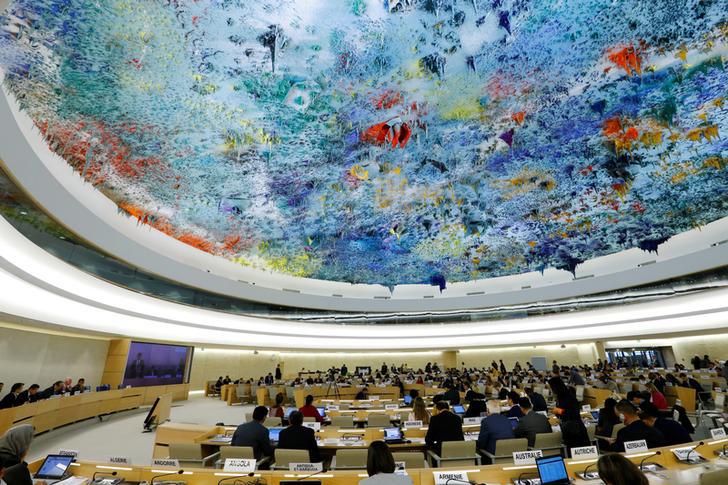File photo depicting the 36th Session of the Human Rights Council at the United Nations in Geneva, Switzerland, November 2017. © 2017 Reuters
Elise Keppler

Liberia’s justice minister, Frank Musa, gave a misleading statement at the United Nations Human Rights Council on March 17 regarding the government’s purported efforts to ensure much-needed justice for widespread atrocity crimes committed during the country’s back-to-back civil wars between 1989 and 2003.
Speaking during the adoption of the outcome of Liberia’s Universal Periodic Review (UPR), Musa claimed Liberia is engaged in national and regional consultations around accountability for serious crimes.
The last such consultation we are aware of, however, took place in 2019. As a coalition of Liberian and international nongovernmental organizations highlighted in a statement on the UPR outcome, the government has been essentially silent since then, while activists and witnesses of alleged crimes have faced increased threats.
In any event, the path forward should be clear without additional consultations. Liberia’s Truth and Reconciliation Commission recommended the creation of a war crimes court over a decade ago. International law requires states to prosecute serious crimes, such as war crimes, which helps ensure victims’ rights to truth, justice, and an effective remedy, while combating impunity. In addition, victims, activists, community leaders, politicians, and members of the general public in Liberia have backed a war crimes court, even marching in the streets to show their support.
Even as President George Weah dithers on a court, accountability for atrocities in Liberia has taken major strides outside the country. Switzerland began the first prosecution of war crimes committed during Liberia’s first civil war in December.
The trial of Alieu Kosiah, also a landmark for Switzerland, concluded in early March and a verdict is expected in the coming months. In February, Gibril Massaquoi went on trial in Finland for alleged crimes committed during Liberia’s second civil war. The Finnish court is even holding some hearings in Liberia, marking the first proceedings on such crimes in the country.
Liberia has the potential to be a leader on accountability for atrocities by establishing a war crimes court in accordance with international standards. Instead, the government is leaving other countries in the driver’s seat. Victims deserve more than officials mischaracterizing old events as new progress and should instead see President Weah’s government unequivocally back a war crimes court and request UN assistance to do so.

